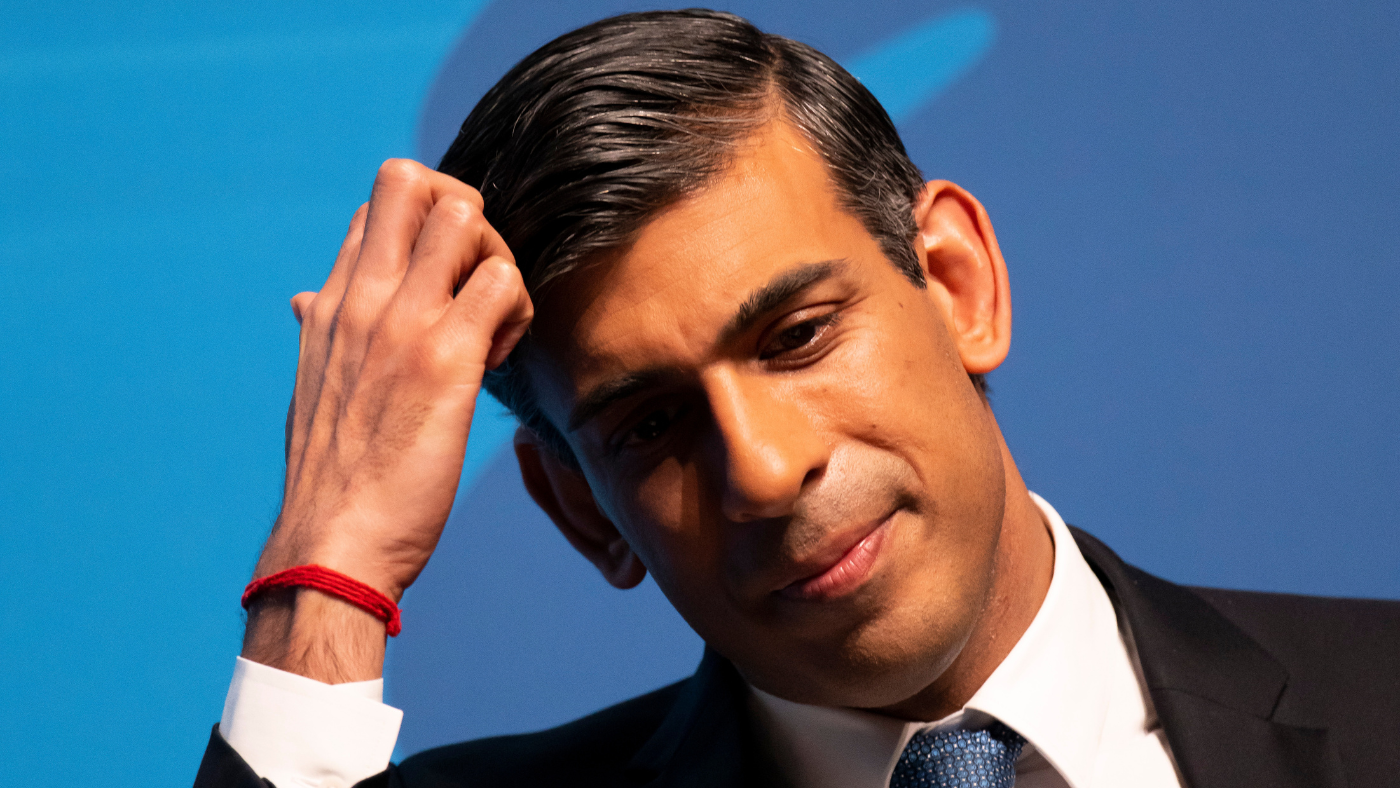The identity crisis facing the Conservative party
Fringe Tory conventions draw attention to ideological fractures in the party

A free daily email with the biggest news stories of the day – and the best features from TheWeek.com
You are now subscribed
Your newsletter sign-up was successful
“The Tory party knows it is sinking,” said Tom Peck in The Independent. This much is clear, not only because many Cabinet ministers – such as Suella Braverman and Kemi Badenoch – obviously have their eye “on the soon-to-be-vacant captain’s job”, but also because of the mood of revolt and ideological frenzy in the party ranks.
The past week has seen not one but two fringe Tory conventions – “mad hatter’s tea parties”, Keir Starmer called them. Last Saturday, “Boris Johnson’s biggest fans”, from Andrea Jenkyns to Priti Patel and Jacob Rees-Mogg, gathered at the inaugural meeting of the Conservative Democratic Organisation in Bournemouth to mourn the death of true conservatism, and to fantasise about bringing Johnson back.
At the second event, the National Conservatism Conference in London, British and American culture warriors were brought together by a US think-tank. Braverman’s speech there “set the tone”, said Gaby Hinsliff in The Guardian, at an event designed to champion “the muscular nation state and traditional nuclear family against the dreaded forces of wokery”.
The Week
Escape your echo chamber. Get the facts behind the news, plus analysis from multiple perspectives.

Sign up for The Week's Free Newsletters
From our morning news briefing to a weekly Good News Newsletter, get the best of The Week delivered directly to your inbox.
From our morning news briefing to a weekly Good News Newsletter, get the best of The Week delivered directly to your inbox.
A ‘full-blown identity crisis’?
It’s no wonder that the party is agitating for change, said Camilla Tominey in The Daily Telegraph. Many traditional Tories struggle to think of a good reason to vote for Sunak, except that “Labour would be worse”. A vote for him is a vote for the status quo. And what does that mean? “Continued strikes and backlogs? Continued mass migration and inflation? Continued economic stagnation?” The highest taxes in half a century? The party now seems to have lost sight of what it stands for.
It is suffering a full-blown identity crisis, said Stephen Davies in the same paper. For many decades, British conservatism was defined by a combination of free-market economics and social conservatism. Today, politics has realigned. The big divides now are between economic nationalists and global free-marketeers; and between those who assert traditional identities against the left-liberal ideas often labelled as “woke”. The problem, as we saw in the local elections, is that such issues split the Tory vote: the nationalist and anti-woke message puts off the David Cameron-style liberals.
Sunak stands in ‘no-man’s land’
What seems very odd, though, is the popular view that Rishi Sunak is somehow not a “true Conservative”, said Dominic Lawson in the Daily Mail – and that Boris Johnson is. On public spending, on immigration, on crime, on family, the PM is an orthodox Thatcherite, whereas Johnson is an unprincipled opportunist.
But Sunak is little better at managing the party’s underlying tensions, said Rafael Behr in The Guardian. “Where Johnson would bluff and bluster, Sunak prefers tactical discretion.” He is giving the Tory right-wing “much of what it wants”, on EU laws and on immigration, for instance, but not enough to keep it happy. Sunak stands awkwardly between the zealots and the pragmatists – stuck “in the churned up bog of a political no-man’s land, sinking”.
A free daily email with the biggest news stories of the day – and the best features from TheWeek.com
-
 Political cartoons for February 22
Political cartoons for February 22Cartoons Sunday’s political cartoons include Black history month, bloodsuckers, and more
-
 The mystery of flight MH370
The mystery of flight MH370The Explainer In 2014, the passenger plane vanished without trace. Twelve years on, a new operation is under way to find the wreckage of the doomed airliner
-
 5 royally funny cartoons about the former prince Andrew’s arrest
5 royally funny cartoons about the former prince Andrew’s arrestCartoons Artists take on falling from grace, kingly manners, and more
-
 Crisis in Cuba: a ‘golden opportunity’ for Washington?
Crisis in Cuba: a ‘golden opportunity’ for Washington?Talking Point The Trump administration is applying the pressure, and with Latin America swinging to the right, Havana is becoming more ‘politically isolated’
-
 Democrats push for ICE accountability
Democrats push for ICE accountabilityFeature U.S. citizens shot and violently detained by immigration agents testify at Capitol Hill hearing
-
 Fulton County: A dress rehearsal for election theft?
Fulton County: A dress rehearsal for election theft?Feature Director of National Intelligence Tulsi Gabbard is Trump's de facto ‘voter fraud’ czar
-
 ‘Melania’: A film about nothing
‘Melania’: A film about nothingFeature Not telling all
-
 Greenland: The lasting damage of Trump’s tantrum
Greenland: The lasting damage of Trump’s tantrumFeature His desire for Greenland has seemingly faded away
-
 Minneapolis: The power of a boy’s photo
Minneapolis: The power of a boy’s photoFeature An image of Liam Conejo Ramos being detained lit up social media
-
 The price of forgiveness
The price of forgivenessFeature Trump’s unprecedented use of pardons has turned clemency into a big business.
-
 The ‘mad king’: has Trump finally lost it?
The ‘mad king’: has Trump finally lost it?Talking Point Rambling speeches, wind turbine obsession, and an ‘unhinged’ letter to Norway’s prime minister have caused concern whether the rest of his term is ‘sustainable’